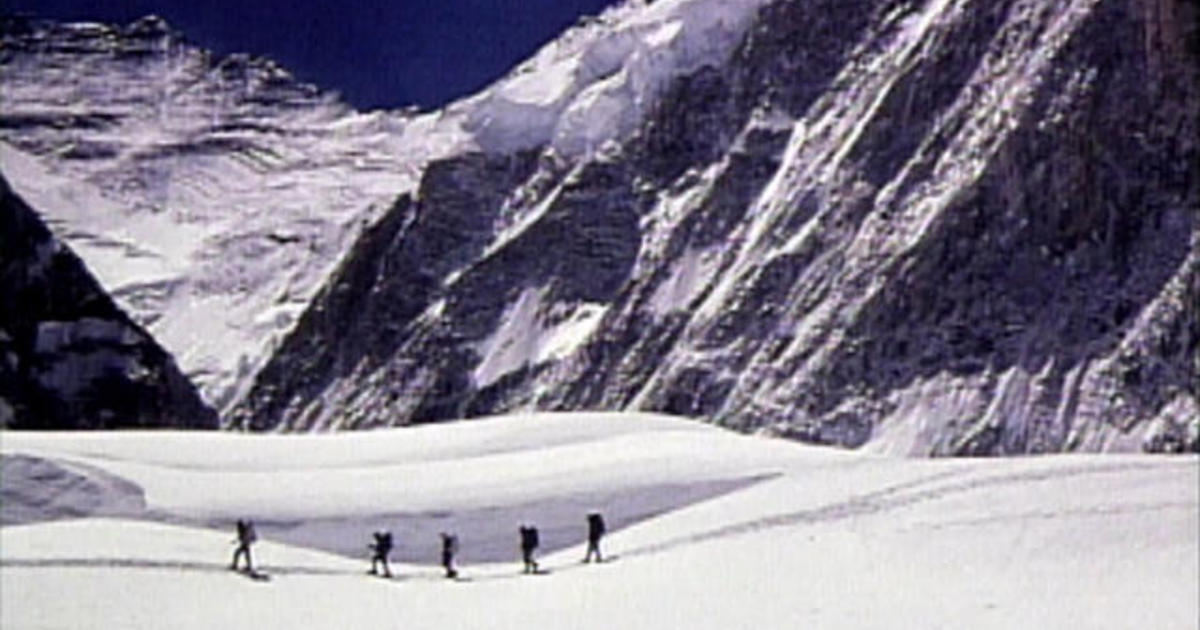
Mount Everest's highest glacier is losing decades' worth of ice every year, scientists warn
CBSN
Melting on Mount Everest's highest glacier is occurring at an alarming pace, according to a study published Thursday by a University of Maine-led research team. The team's findings suggested that ice that had taken decades to accumulate was melting away each year, jeopardizing both climbers and those who depend on the glacier for drinking water and irrigation.
Though studies on the impacts of climate change are common, little work has been done on the melting of mountain glaciers in the highest parts of the world. In early 2019, National Geographic and Rolex's Perpetual Planet Everest Expedition began "the most comprehensive scientific investigation" ever attempted in the area, according to a press release about the study. As part of that expedition, the scientists obtained the highest-ever ice core and established the world's two highest automatic weather stations.
By studying the ice core, taken from the South Col Glacier, as well as data from weather stations and satellite imagery, the researchers found that effects of climate change had not just reached the top of the highest mountain in the world, but had significantly altered its landscape in the last two decades. Crucially, the researchers found that the South Col Glacier has lost its snowpack — a thick covering of snow over the hard ice of the glacier — which accelerated the melting process.

Scientists say they've discovered the world's biggest coral, so huge it was mistaken for a shipwreck
Scientists say they have found the world's largest coral near the Pacific's Solomon Islands, announcing Thursday a major discovery "pulsing with life and color." The coral is so immense that researchers sailing the crystal waters of the Solomon archipelago initially thought they'd stumbled across a hulking shipwreck.










